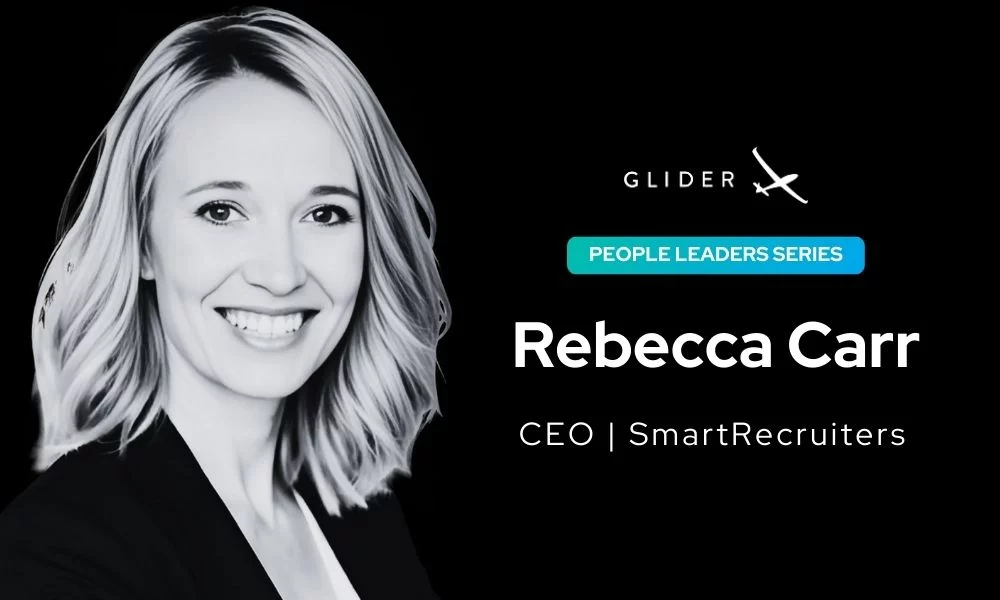Attracting and retaining top performers in a hypercompetitive job market requires more than just posting a job description. It would help to build a winning recruitment marketing strategy that makes your company attractive to top talent.
What is recruitment marketing?
Recruitment marketing combines strategies and tools organizations use to engage and entice job candidates in the pre-applicant phase.
Its goal is to promote the value of working for the organization and establish a brand to attract candidates.
Modern recruitment strategies use digital marketing techniques such as social media platforms, omnichannel communication, data analytics, hyper-targeted messaging, and automation — particularly AI.
Why is recruitment marketing important?
A solid recruitment marketing strategy can help your company secure the right people in a competitive market for skilled labor.
These days, job seekers approach job search like consumers approach shopping — they rely heavily on online resources and public feedback. Most of them are passive candidates who are not actively looking for new opportunities but are open if the right one presents itself. They form an opinion about your company as a potential employer long before they consciously consider applying for a job, drawing insights from news articles, social media, job boards, Google searches, and conversations with friends and family, among other sources. Thus, you must use recruitment methods that activate your employer brand across all these touchpoints and engage talent exactly where and when it matters most.
The benefits of recruitment marketing
With a solid recruitment marketing strategy, you can:
- Build a talent pipeline of high-quality candidates who align with your strategy, even if they are still waiting to be aren’t apply today.
- Reduce time-to-hire by having pre-qualified candidates ready for open positions.
- Tailor communication and content throughout the recruitment journey to create a positive first impression.
- Showcase your company culture and values to attract the best talent.
- Track and optimize marketing efforts to reduce your reliance on expensive recruitment methods.
- Capture and nurture high-potential candidates who may wait to apply.
- Proactively attract diverse talent through targeted outreach and content.
Components of recruitment marketing
1. Stand out with your brand
Attracting top talent in a tight job market requires projecting a positive and desirable image that makes your company attractive. “What does” it feel like to work with your company?” Your employment brand should answer this question effectively. Here’s how your brand can become an employer of choice:
Create a compelling selling point that differentiates your company from competitors. What is your value proposition? Highlight your company, its uniqueness, your emphasis on work-life balance, the career development opportunities available for recruits, and any unique benefits you offer.
Tell authentic stories that people can connect with. For example, you can share employee testimonials about their experiences and the many positive aspects of working at your company. You can also use video interviews, blog posts, or social media content to showcase these stories.
2. Seamless candidate experience
Did you know that 78% of candidates— in 5—see the candidate experience as a reflection of how a company values its people? Making this experience positive from start to finish can do wonders for encouraging high-quality talent to apply for your open positions.
One of the best things you can do is to keep candidates informed throughout the process. Acknowledge their application submissions quickly and be transparent about timelines.
AI can automate these tasks and more. For example, it can personalize email communications based on the application stage and candidate information. AI can even schedule interviews to eliminate the often-frustrating back-and-forth of finding mutually available times between candidates and hiring managers. It can also provide updates on interview decisions.
3. Proactive candidate engagement
Many skilled professionals aren’t actively looking for jobs, so don’t wait for them to come to you. Use AI to scour online platforms like LinkedIn, job boards, and social media. AI recruitment tools can analyze profiles and resumes based on keywords, skills, experience, educational background, and other factors to identify candidates who might be a good fit for your company, even if they aren’t actively applying for jobs.
4. Leverage the right tools
The right recruitment marketing tools can streamline your efforts and improve results. For instance, AI can help you manage applications and organize candidate information, aside from automating repetitive tasks such as screening resumes. AI recruitment tools also let you personalize candidate communication to nurture relationships and boost engagement.
5. Genuine candidate relationships
Being real fosters trust and loyalty. Avoid generic messages. Always use the candidate candidates to tailor your outreach to their professional interests. You also need to provide feedback (even to candidates who were not selected). This shows professionalism and could lead to future opportunities.
6. Measure success with data
Data can help you understand what aspects of your recruitment marketing strategy work and what needs improvement. You can use AI to monitor website traffic, application numbers, time-to-hire, and candidate experience ratings. Analyze this data for trends and areas for improvement, and then refine your strategy.
How to create a recruitment marketing strategy?
1. Decide what you want to achieve.
Set clear, measurable goals for your recruitment marketing strategy. Do you want to boost brand awareness among potential candidates? Increase applications for hard-to-fill roles? These goals provide direction and help you track your success over time.
2. Identify the type of people you’re looking for.
Understand the skills, experience, and qualities of your ideal candidate. This clarity will help you tailor your marketing efforts and attract the perfect fit.
3. Choose where to find them.
Different demographics use different platforms. Identify where your target candidates spend their time. For instance, Instagram may be a valuable tool for reaching millennial and Gen X candidates, while LinkedIn is more effective for professionals across various demographics. Specialized platforms like Slack channels can also help reach niche groups.
4. Plan how to use your resources.
Allocate your time, effort, and budget strategically. Balance paid advertising with organic growth to maximize your reach without overspending.
5. Create a schedule for your content.
Plan your recruitment marketing content using a content calendar that outlines what content you will post on which platforms and when. A well-planned calendar keeps your messaging timely and relevant.
Glider AI can help you automate many tasks when implementing a recruitment management strategy. Book a demo to find out how.



